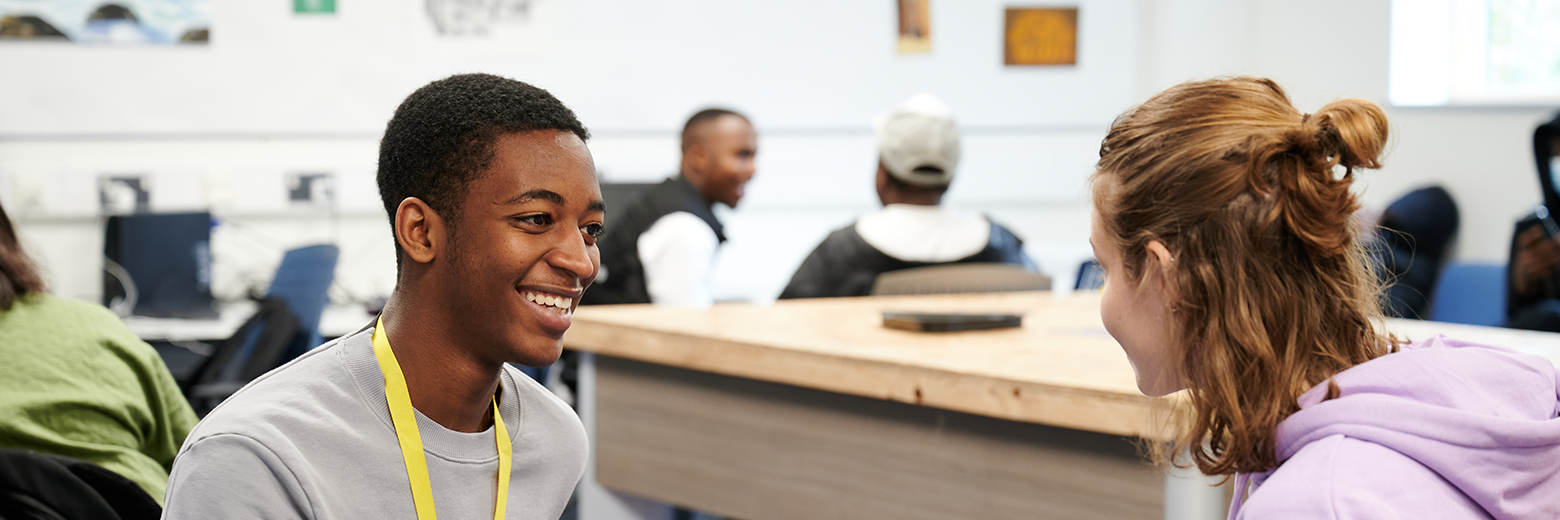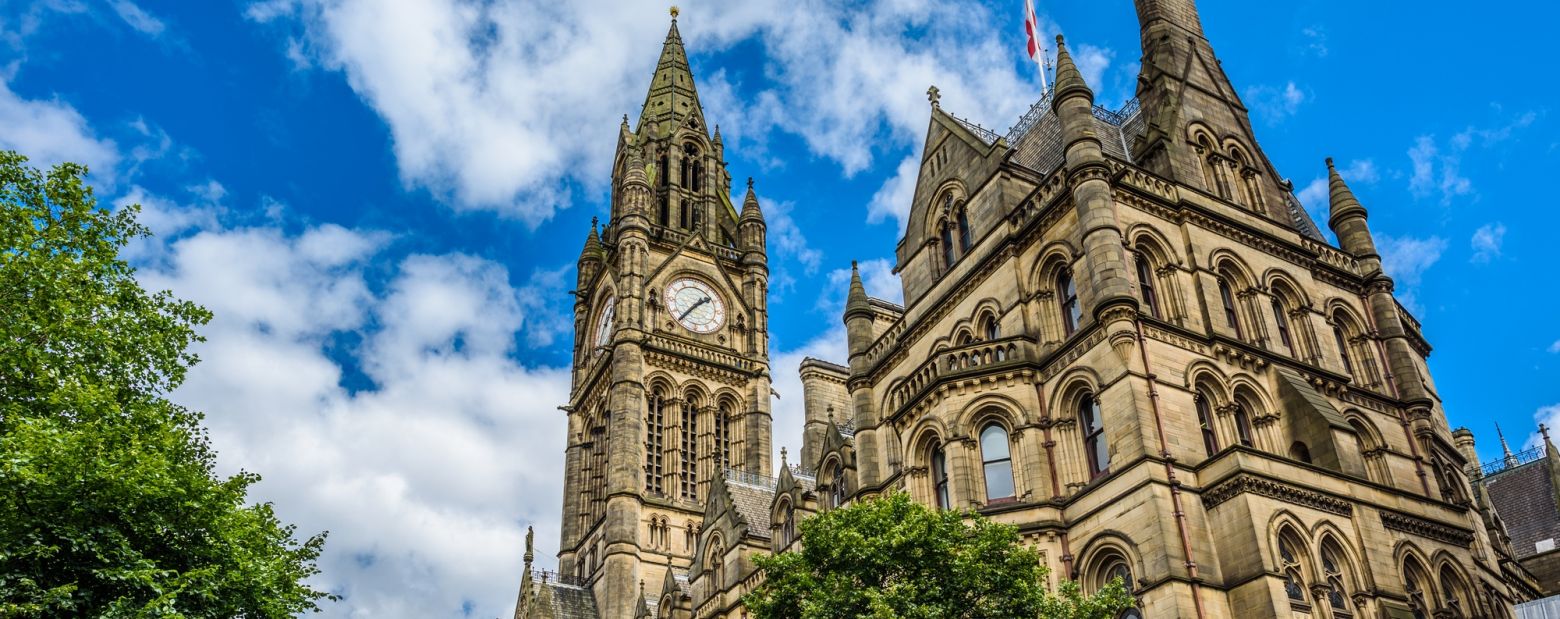Comparing the Russian and UK Education Systems: A Comprehensive Guide for Russian Students Thinking About Studying in the UK.
19th March 24

Introduction
Are you a Russian student considering studying in the UK? Understanding the differences between the Russian and UK education systems is crucial for making an informed decision about your academic future. In this guide, we’ll delve deep into each level of education, comparing and contrasting the systems of both countries to help you navigate your options effectively.
Pre-Primary Education: Building Foundations
Russia: Preparing for Formal Learning
In Russia, pre-primary education plays a vital role in laying the groundwork for formal schooling. Children aged up to six years have access to pre-school facilities such as nurseries (детские ясли – detskie iasli) and day-care centres (детские сады – detskie sady), where they engage in activities designed to foster cognitive, social, and emotional development. The curriculum focuses on interactive play, socialisation, and basic skill development.
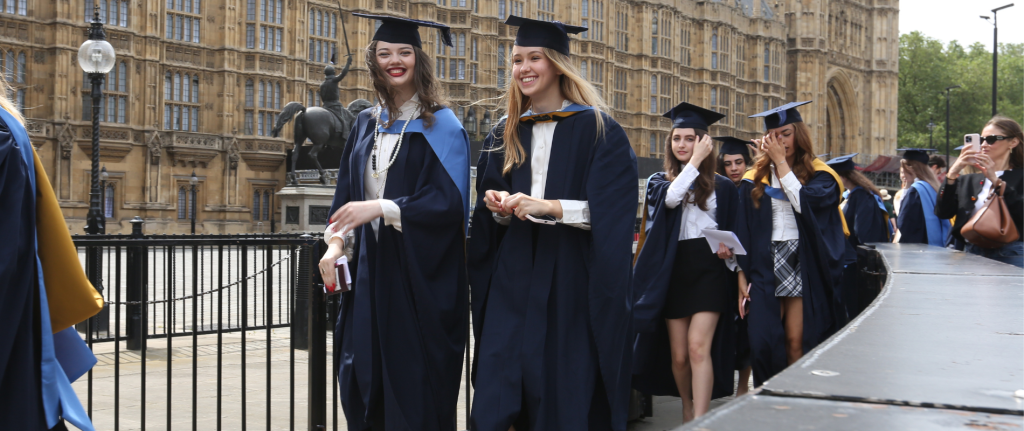
UK: Early Years Foundation Stage (EYFS)
In the UK, the Early Years Foundation Stage (EYFS) provides a similar foundation, focusing on the holistic development of children from three to five years old. Early childhood education centres emphasise play-based learning and skill-building across various areas of development. The EYFS curriculum is structured around seven key areas of learning, i.e. personal, social & emotional development, literacy, mathematics, understanding the world, including communication and language, physical development, and expressive arts and design.
Primary Education: Nurturing Young Minds
Russia: Primary General Education
In Russia, primary school, overseen by the Ministry of Education, is compulsory for all children. Primary education in Russia spans grades 1 to 4, beginning around the age of six. The curriculum emphasises core subjects such as mathematics, Russian language, literature, science, and social studies, laying a solid academic foundation for further learning. Most schools introduce English or German, along with music, physical education, and “the world around us,” covering geography and history. Instruction tends to be teacher-centred, with a focus on rote learning and memorisation.

UK: Key Stage 1 and 2
In the UK, Key Stage 1 (ages 5 to 7) and Key Stage 2 (ages 7 to 11) are taught in a primary school setting. Students study a broad range of subjects, including English, mathematics, science, history, geography, and art, with a focus on developing literacy and numeracy skills. The curriculum promotes a more child-centred approach, with an emphasis on active learning, critical thinking, and creativity.
Secondary Education: Building Upon Foundations
Russia: Basic General Education
Basic General Education is compulsory and lasts from Year 5 to Year 9. The total nine years of compulsory education (including primary) are also referred to as incomplete secondary education (неполное среднее образование – nepol’noe obshchee srednee obrazovanie). State examinations are conducted upon completion of Year 9 in Russian language and mathematics, utilising both written and oral assessment methods. Following this stage, students can progress to technical and vocational education.
Achieving grades of 3 or above is required for each subject included on the list of mandatory subjects other than Russian Language and Mathematics.
Upon completion of Year 9, students undertake compulsory standardised examinations (State Final Certification / Gosudarstvennaya Itogovaya Attestatsiya). Students must sit exams in at least four subjects, with Russian language and mathematics being compulsory, while the other two subjects can be selected from those studied in Year 9. Upon successfully passing all four exams, students are awarded the Certificate of Basic General Education (Attestat ob osnovnom obshchem obrazovanii).
UK: Key Stage 3 and 4
In the UK, secondary education comprises Key Stage 3 (ages 11 to 14) and Key Stage 4 (ages 14 to 16), culminating in the General Certificate of Secondary Education (GCSE) examinations. Students study a wide range of subjects, including compulsory core subjects and optional electives in key stage 4. The curriculum encourages independent inquiry, critical thinking, and project-based learning.
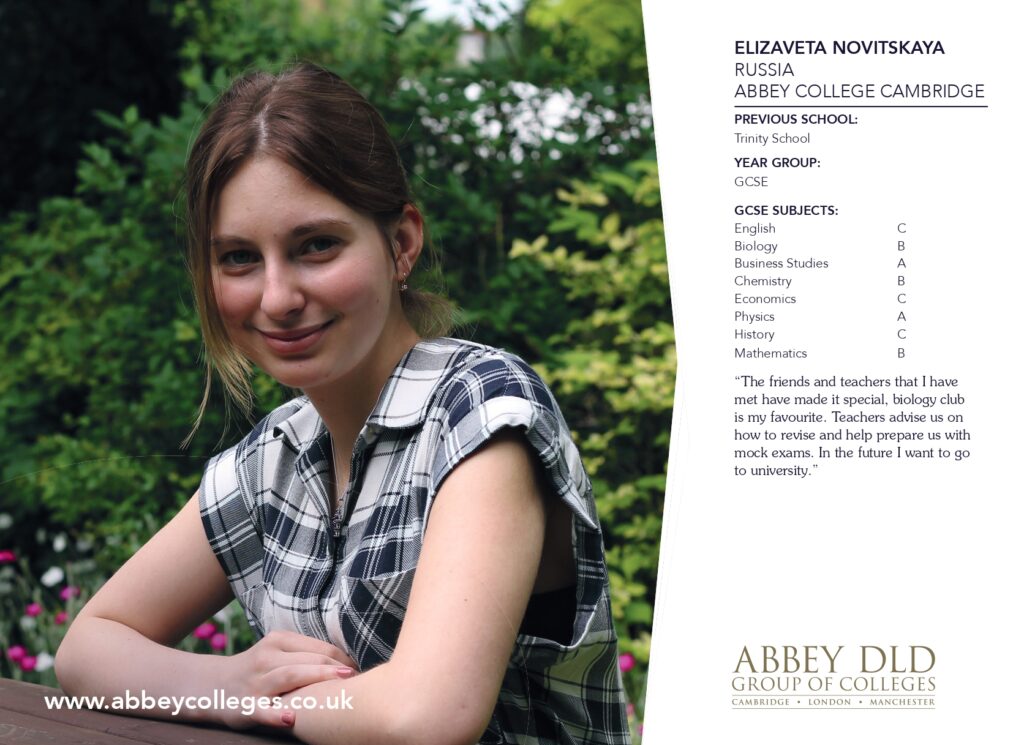
Upper Secondary Education: Specialisation and Preparation
Russia: Grades 10 to 11
Upon finishing nine compulsory years of education, students have the option to continue for an additional two years in high school. After Year 11, both school and state examinations are taken and successful candidates are granted the Certificate of Secondary General Education (Attestat o srednem obshem obrazovanii). This, coupled with the results of the Unified State Examinations (USE), facilitates entry into higher education.
Upper Secondary Education in Russia covers grades 10 to 11 and is not compulsory. Students have the option to specialise in specific subjects, with schools offering both basic and profile (advanced) level courses. The curriculum includes core subjects alongside elective choices, with an increasing focus on preparation for university entrance examinations.
UK: Post-16 Education
In the UK, post-16 education includes a variety of pathways such as A-levels, vocational qualifications (e.g., BTECs),and apprenticeships. Students typically choose subjects aligned with their career aspirations or university goals, leading to further academic or vocational pursuits. Instruction emphasises independent study, critical analysis, and preparation for higher education or the workforce.
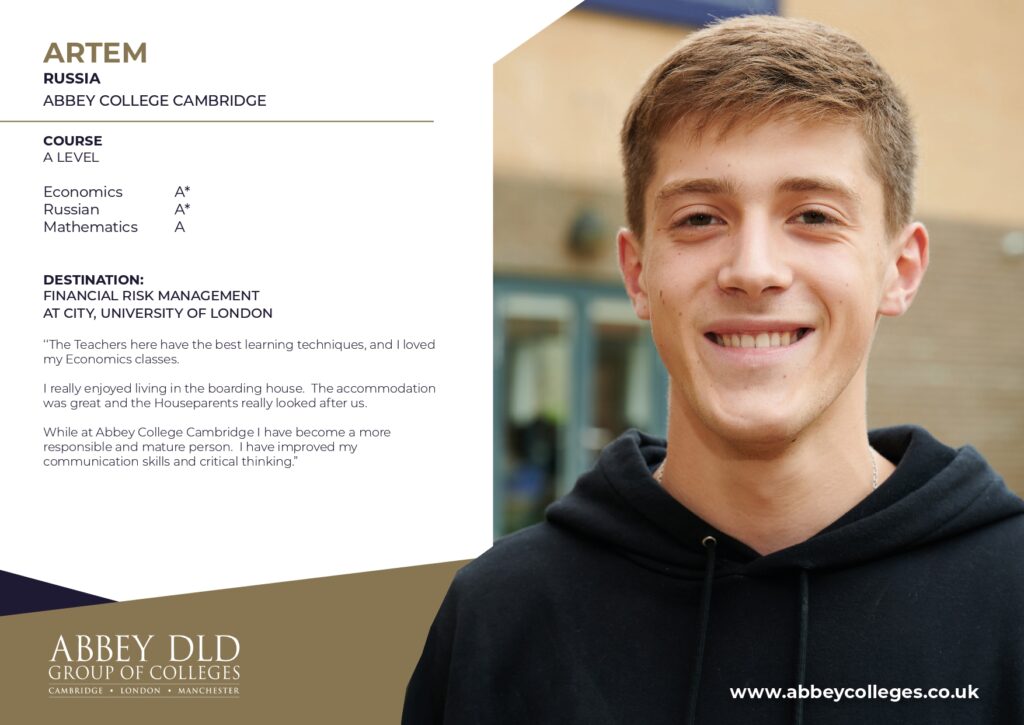
Do you know?
The Abbey DLD Group of Colleges (ADLD) consists of three independent sixth-form colleges located in Cambridge, London, and Manchester, offering a wide range of academic study programmes.
At Abbey DLD we strive to achieve the highest academic standards whilst providing a welcoming, safe and high-quality learning and boarding experience for students from around the world. We aim to help our students achieve the academic success needed to progress to the UK and the world’s top universities, whilst also developing the personal skills and qualities to succeed at university and beyond.
British vs Russian Education System Comparison Table
To provide a clear overview, the comparison table below highlights the key differences between the Russian and British education systems:
| Education Stage | Russia Education System | British Education System |
Pre-Primary Education | Age Range: Up to 7 YearsFocus: Cognitive, social, emotionalCurriculum: Interactive play, basic skill development | Age Range: 3-5 (Early Years Foundation Stage)Focus: Emphasises cognitive, communication, social, and physical skillsCurriculum: Seven key areas of learning, play-based approach |
Primary Education | Grade Levels: Grades 1 to 4Core Subjects: Mathematics, Russian Language, Science, Social StudiesEducation Style: Teacher-Centred, Rote Learning. | Grade Levels: Reception, Key Stage 1 (ages 5-7) and Key Stage 2 (ages 7-11)Core Subjects: English, mathematics, science, history, geographyEducation Style: Child-centred, active learning |
Secondary Education | Grade Levels: Grades 5 to 9Additional Subjects: Foreign languages, arts, physical educationEducation Style: Traditional, standardised testing | Grade Levels: Key Stage 3 (ages 11-14) and Key Stage 4 (ages 14-16)Additional Subjects: Optional electives, vocational subjectsEducation Style: Enquiry-based, project-based learning |
Upper Secondary Education | Grade Levels: Grades 10 to 11Specialisation: Basic and profile level courses.Education Style: Preparation for higher education, vocational pursuits | Grade Levels: Post-16 education (A-levels, vocational qualifications)Specialisation: Subject choices aligned with career goalsEducation Style: Independent study, critical analysis |
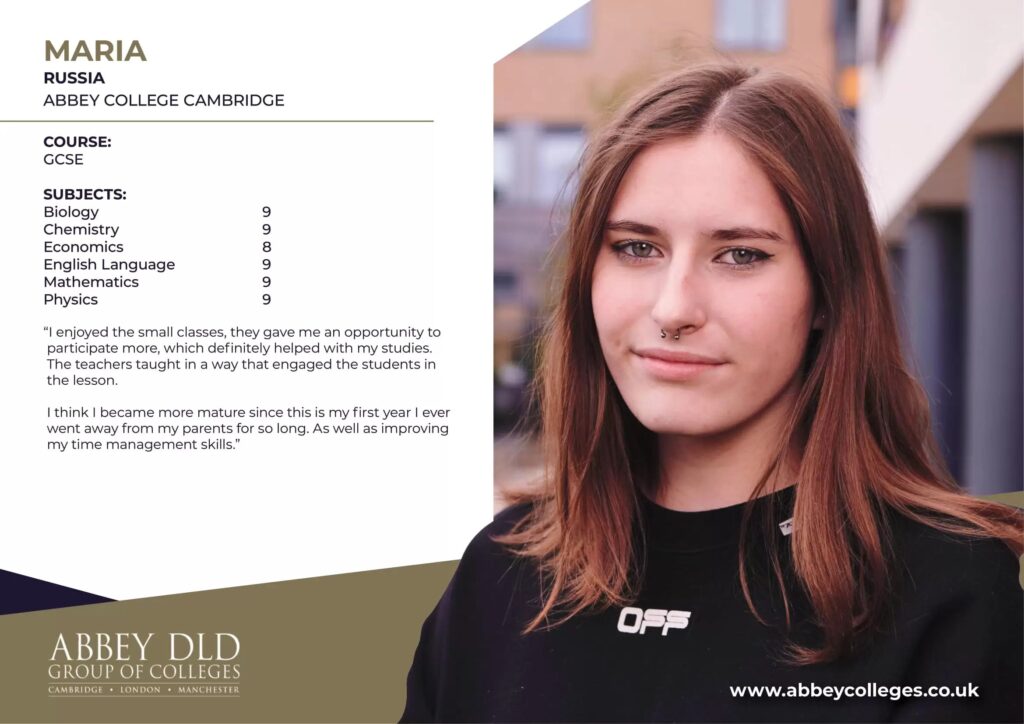
Do You know?
Every year Abbey DLD Students achieve outstanding results and move on to join some of the world’s most prestigious and highly-ranked universities. In 2023, 41% of our A Level students and 38% of our Foundation students progressed to Russell Group Universities, and 14 of our students progressed to study at Oxbridge Colleges or Medical School.
Tertiary Education: Pursuing Higher Learning
Russia: Higher Education System
In Russia, tertiary education typically begins after completion of upper secondary education. The system offers a variety of options, including universities, institutes, and academies. Bachelors degree programmes typically last for four years, while Masters programmes typically last for two additional years.
The curriculum in Russian higher education institutions is often structured around lectures, seminars, and practical exercises. Students are expected to conduct independent research and complete projects as part of their coursework. Assessment methods may include examinations, coursework, presentations, and theses.
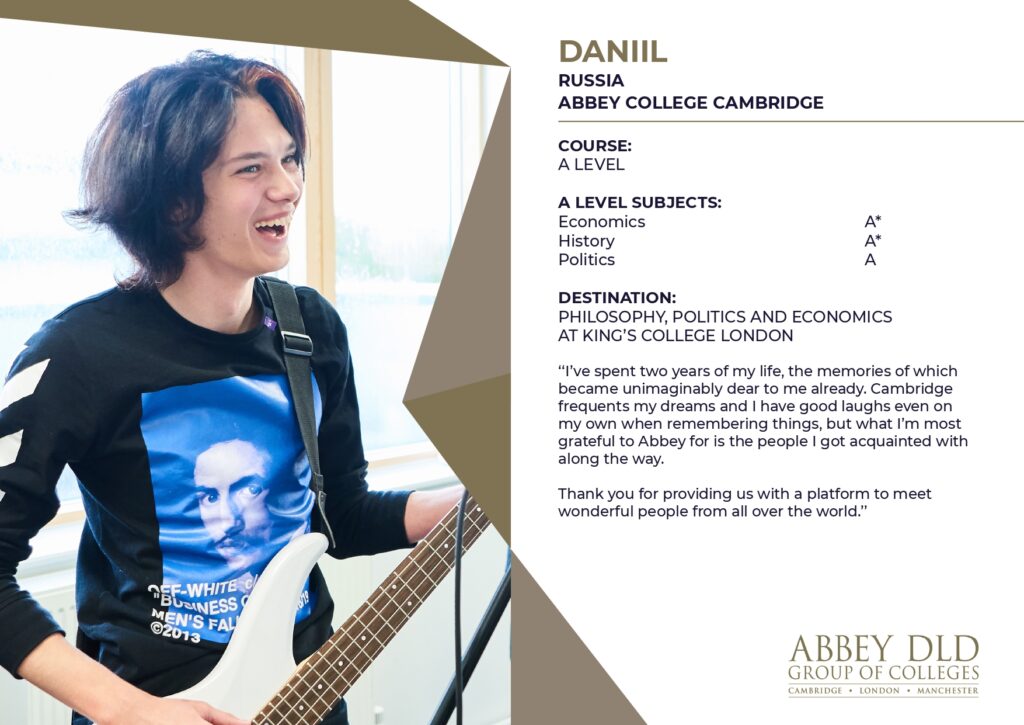
UK: Higher Education Landscape
In the UK, higher education is offered by universities and colleges, with degree programs ranging from undergraduate to postgraduate levels. Undergraduate degrees typically take three to four years to complete, while Masters degrees can take one to two years.
The UK higher education system emphasises independent study, critical thinking, and research skills. Teaching methods include lectures, seminars, tutorials, and laboratory sessions. Assessment methods vary but often include examinations, essays, coursework, presentations, and dissertations.
Understanding the nuances of the education systems in Russia and the UK is essential for students contemplating studying abroad. Whether you’re considering the structured approach of the Russian system or the flexible pathways offered in the UK, weighing your options carefully will empower you to make the best decision for your academic journey.
At Abbey DLD Group of Colleges, we understand the importance of a tailored educational experience. Our programmes are designed to support international students in achieving their academic goals, providing a pathway to success in higher education and beyond. Join us on a transformative learning journey and unlock your full potential with the Abbey DLD Group of Colleges.
Explore our programs today and take the first step towards a brighter future!
Blog Author
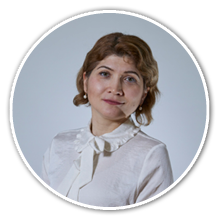
Valentina Orlova
Regional Manager Russia/CIS
E: valentina.orlova@abbeydld.co.uk
GET IN TOUCH TODAY:
Since 1931, the Abbey DLD Group of Colleges has been synonymous with high-quality education, top university destinations, and enriching academic and pastoral experiences. Abbey DLD students graduate equipped with the skills to progress in their university studies and future careers, with friends from all around the world, and having made memories to remember for a lifetime.
Please note that our three colleges, each with its own unique character, all share a common goal: to deliver outstanding educational and residential experiences for students aged 13 to 21. We do not provide university-level undergraduate or postgraduate education.

